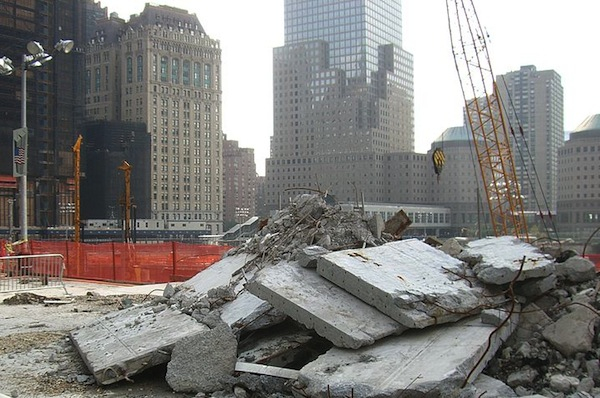
Photo by: Diego Delso, Wikimedia Commons, License CC-BY-SA 3.0
Ground Zero. A report finds that the urge to return to an appearance of normalcy after September 11 was one of the reasons important health precautions weren’t taken.
The federal government must take charge of public health practices at disaster scenes, where there must be stricter enforcement of rules on respiratory equipment and shift duration if the illnesses that struck tens of thousands of September 11 responders are to be avoided the next time a major disaster strikes.
So concludes a report released today by the New York Committee for Occupational Safety and Health, a consortium of workers, unions, health professionals and advocacy groups.
The report makes a lengthy list of recommendations on everything from training to workers’ compensation—and notes that the responses to more recent disasters like Hurricane Katrina, the BP Gulf oil spill and Superstorm Sandy all showed their own flaws.
One interesting aspect of its findings is that beyond the changes in rescue and recovery practices, a shift in the thinking about post-disaster life is necessary. Basically, the common and understandable drive to “get back to normal” has to be resisted—at least until ab-normal risks are eliminated.
“After the attacks, the quest for the appearance of a return to normalcy took precedence over prevention of additional harm to responders, workers and residents,” the report finds. “The premature reopening of Wall Street, the unwarranted extension of the rescue phase, the failure to implement and enforce timely and effective worker respiratory protection, and the non-implementation of risk assessment and environmental remediation in potentially contaminated workplaces and residences all contributed to unnecessary and avoidable health harm.”







